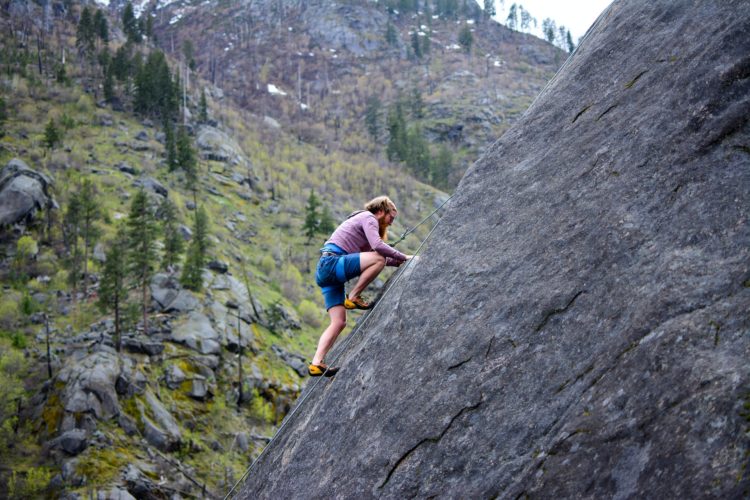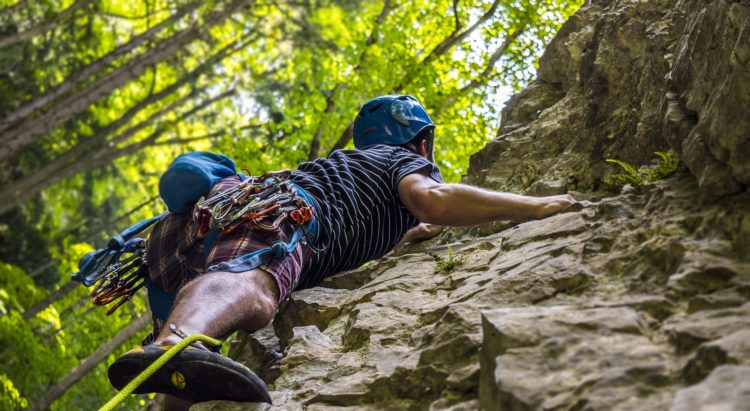For people who find so much joy in climbing, there are two keys to keep in mind. First is the “strength-to-weight ratio,” and second is the “power-to-weight ratio.” Just like your technical climbing skills, you also need to pay close attention to both to ensure that you become a triumphant climber. The understanding of the importance of power and strength (and the ratio of such) will help make the whole experience fuller for a climber.
It can be a dangerous hobby, which is why you must make sure to keep your body composition ideal for climbing. Below, we will talk about the many methods that can help sharpen your climbing skills, the necessary preparations you should keep in mind, and the ideal weight that you should maintain as a rock climber.
The Climber’s Ideal Weight

It is a common question that hasn’t been clearly explained yet since there are factors (like age or gender) which you should consider if you want to find out the ideal weight for climbing. The perfect weight for women differs from that of men. Men have lower BMI ratio as related to women. To get your BMI, you should find out what your height and weight are and work towards comparing this to the BMI chart. For avid rock climbers, the recommended BMI range is 18.5 – 24.9.
Since climbing is a hobby that involves hanging on your weight, your power and weight will play a massive role in your climbing endeavor. Many expert climbers weigh around 143 to 165 pounds. If you’re too heavy, holding onto rocks for climbing will most likely be more demanding on top of lifting yourself. A slimmer figure will make you a lot more agile and will boost your stamina as a climber.
Quick Training Tips for an Easier Rock Climbing Experience
While your BMI is an essential component, training your hands is just as vital. Climbing and holding onto edges are two different things that should harmoniously work for an easier climb. Climbers should strive to strengthen their hands and fingers to hold onto rocks for more extended periods successfully. A great way to improve on this is to use a grip strengthener regularly. Including this in your daily routine should be easy since you can do it just about anywhere and whenever.
Other exercises such as pull-ups, dead hangs, planking, leg lifting, and yoga will significantly boost your climbing performance and endurance overall. Yoga, in particular, will develop your flexibility, patience, and balance as a climber. Make sure to include them in your training for more effective rock climbing that you will surely enjoy.
Conclusion
Keeping your BMI within range (18.5 0 24.9) will ultimately level up your climbing game. Aside from this, you should also consistently apply the training tips provided to improve your power, strength, and agility as a climber. By staying motivated and disciplined, you will surely encourage harmony among all the essential components stated above; you will most certainly have a more complete and hassle-free rock-climbing experience.

